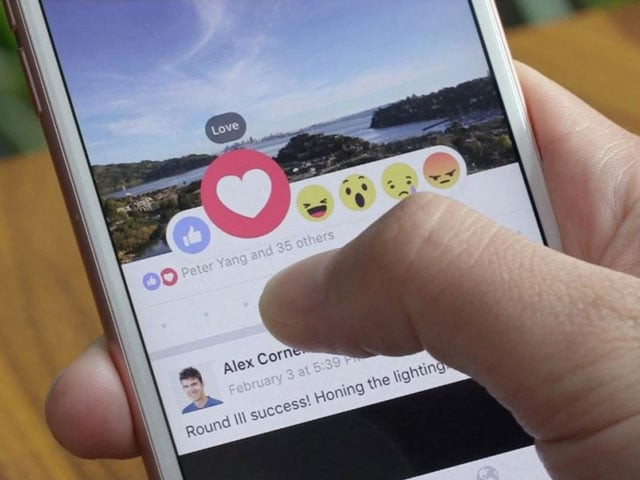Facebook uses reaction tool to gather users’ information, claims Belgian police
The social media giant launched in February six new ways of expressing emotions alongside the 'like' button

Belgium has warned its citizen against reacting to posts on social media to protect their privacy. PHOTO: Facebook via Independent
The social media giant launched in February six new ways of expressing emotions alongside the 'like' button. The reactions were intended partly as a way of answering calls for a ‘dislike’ button, allowing people to share their feelings about posts without appearing to endorse what had been said.
However, the Belgian police have claimed that the site is using them as a way of collecting information about users to decide how best to display relevant advertisements to the public.
Facebook CEO announces investigation into anti-conservative bias
“The icons help not only express your feelings, they also help Facebook assess the effectiveness of the ads on your profile,” a message displayed on Belgian’s official police website reads.
It maintains that the social platform is able to use the tool to tell when people are likely to be in a good mood and then use that to decide when is the best time to show them ads.
“By limiting the number of icons to six, Facebook is counting on you to express your thoughts more easily so that the algorithms that run in the background are more effective,” the post continues. “By mouse clicks you can let them know what makes you happy.
“So that will help Facebook find the perfect location, on your profile, allowing it to display content that will arouse your curiosity but also to choose the time you present it. If it appears that you are in a good mood, it can deduce that you are more receptive and able to sell spaces explaining advertisers that they will have more chance to see you react.”
How to find out what Facebook knows about you
Although Facebook has said that the Reactions tool is a way of allowing people to react in more complex ways and it also provides valuable data to the organisation about how things make people feel, as well as encouraging them to interact with posts amid worries that people are becoming less and less personal on the site, several people have pointed out, since its release, that the tool is helpful to advertisers.
Soon after the feature was released, Facebook also confirmed that reacting angrily to a post would be treated as any other kind of engagement with it. Since Facebook treats engaging with a post as an indication that users want to see more things like it, that means that reacting angrily could lead to seeing similar posts and could be sold to advertisers, too.
This article originally appeared on The Independent.



















COMMENTS
Comments are moderated and generally will be posted if they are on-topic and not abusive.
For more information, please see our Comments FAQ